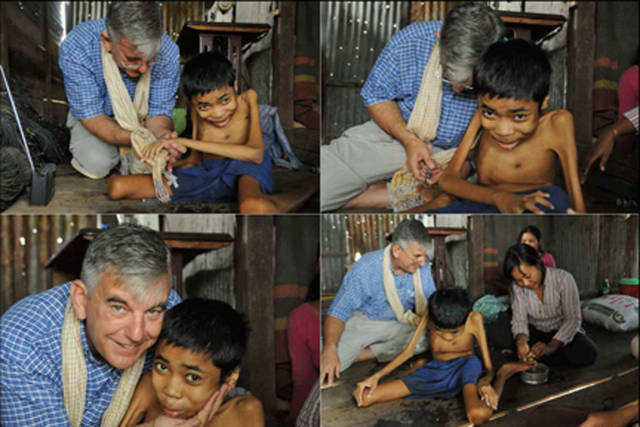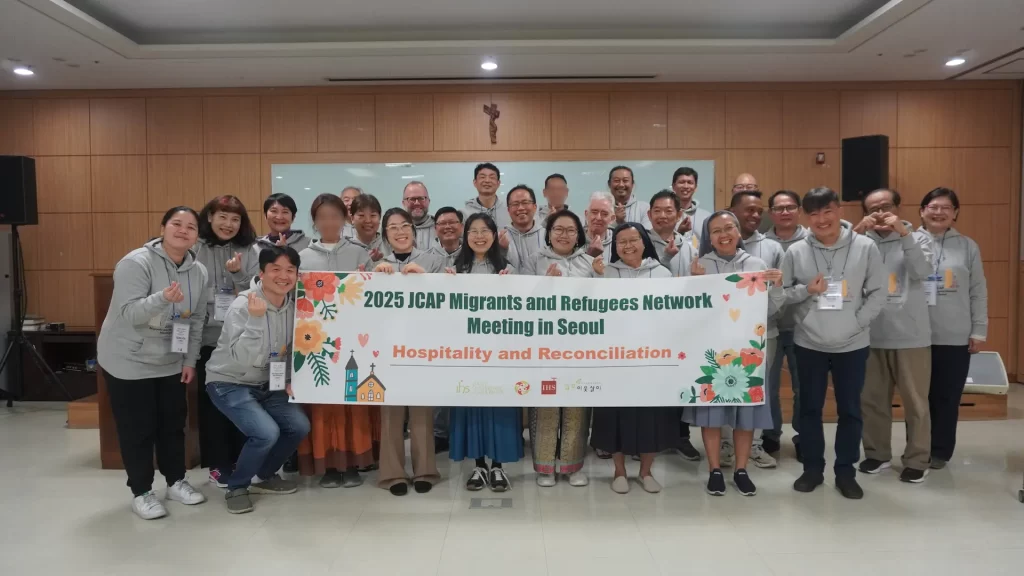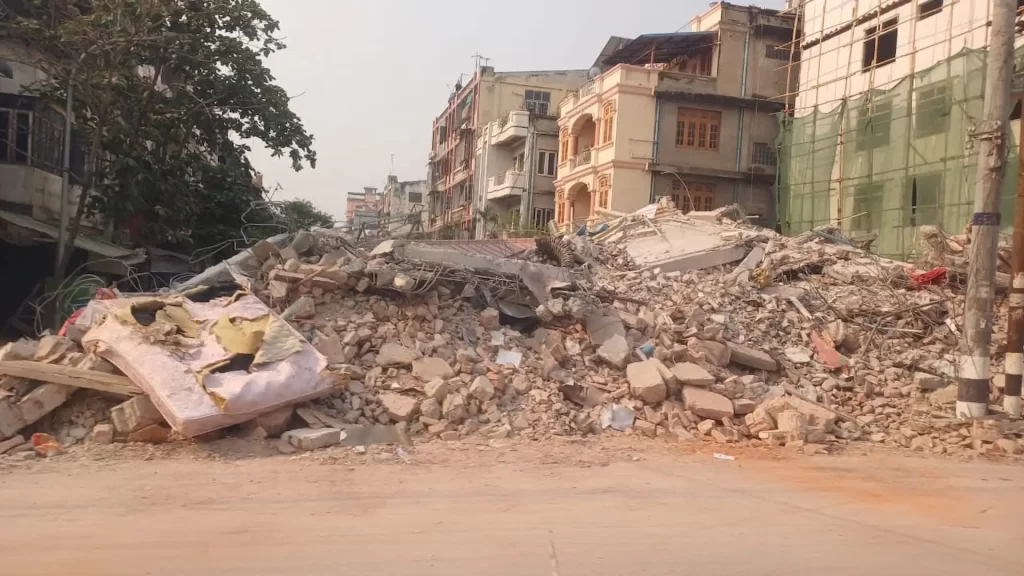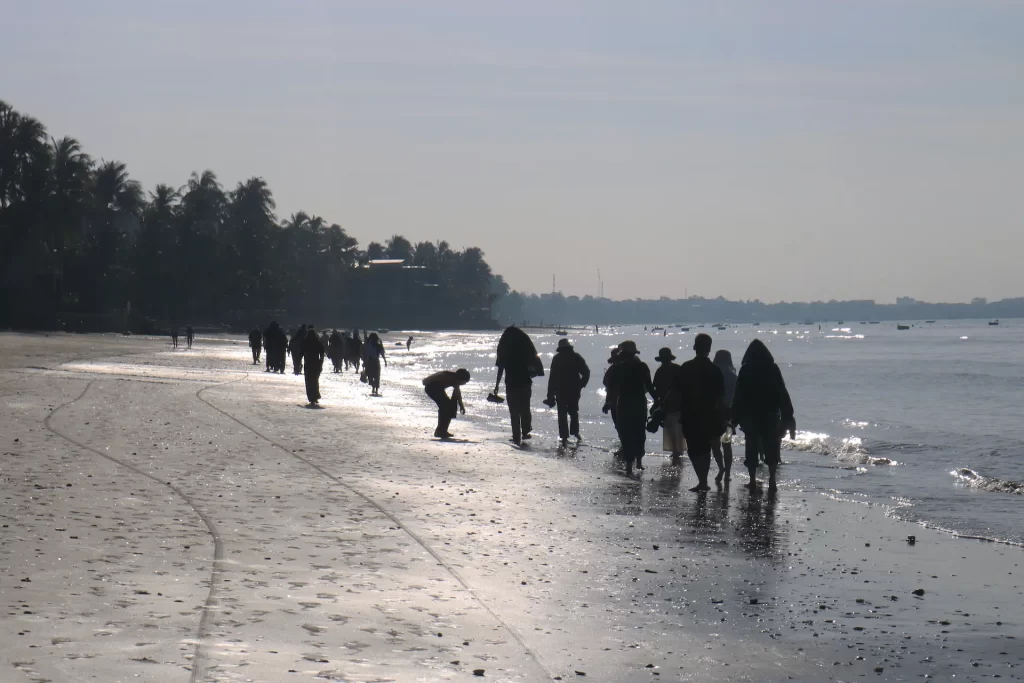Last week I had the great luck of being able to go to the villages in the region of Banon with Phally, Theara and Javivhín. They are three members of the team of the Arrupe Center that work in remote villages helping disabled people. This team that we called in Cambodian “Krom cho tau phum” (The team that stands up and goes to villages) or in English “Outreach Team” is made up of 12 people, 3 of them are victims of mine. This group is one of the main engines of action of the Arrupe Center. And it cannot be any other way because it is them who know the reality and needs of the disabled “in situ”, where they live.
The teams of “Outreach” visit and keep disabled people company regularly in their homes. By listening to the local community and to their families, they try to answer the vital and basic needs of the most vulnerable, many times not covered.
The team offers help to the disabled people in many different aspects integrated in one same objective: rehabilitation and integration of the individual in the community. Through regular visits, our team offers help also in education, housing, hygiene, physic rehabilitation, nutrition, health care and integration in the community.
The other day, the group of “Outreach” divided itself in three little teams to visit disabled people in three different areas. They team I was part of visited Channy, Phirum and Chivoan. They are three very special people. All three use a wheelchair and have disability in both of their legs. Their disabilities were not caused by a mine accident in any of the cases and each one has different movement malfunctions.
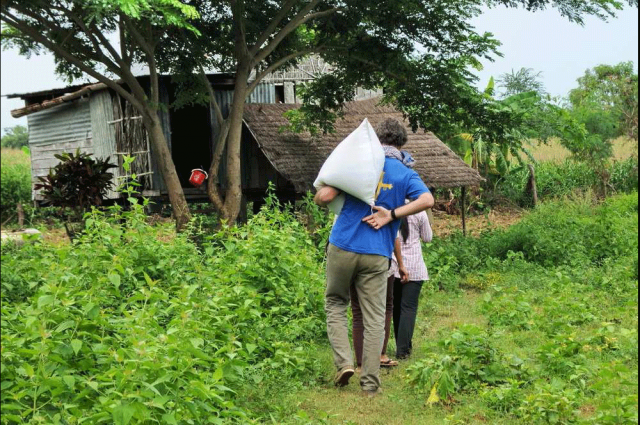
In our visit we had time for a little conversation. We also brought him 60 Kg of rice that Javichín carried on his shoulders into his house. Channy wasn´t very clean when we arrived. He was listening to the radio, he knows how to turn it on despite his physic limitations. We used the opportunity to wash his hands, arms and feet, cut his nails with clean water and some lemons that Ho brought from the vegetable garden. All of these strongly remind me of the chapter 13 of St. John’s Gospel. It was like a little liturgy of the Holy Thursday in the Washing of the Feet. Channy thanked us for everything with a huge smile, with bright eyes and with a few words that meant more that any long conversation that we could have had. He made us understand that our presence was very important to him. Channy is unable to have a conversation or say anything more than “yes”, “no” or other short expression. We believe that his difficulty to talk is due to his isolation rather than to his disability.
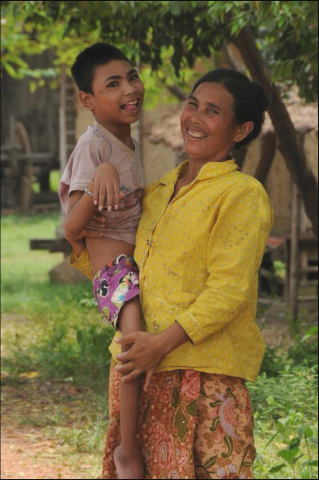
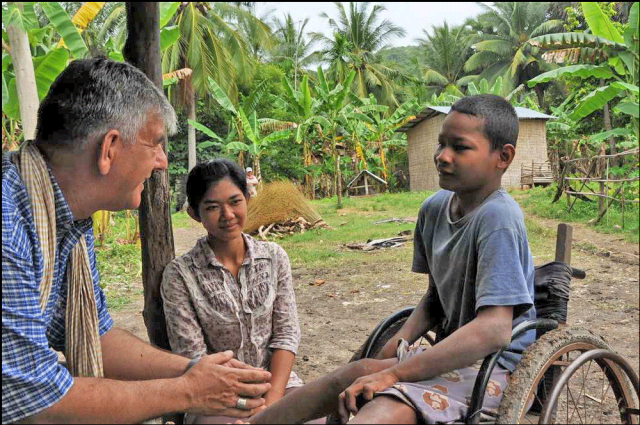
Chivoan cannot coordinate his movements so he is unable to manipulate his wheelchair or to write Cambodian. On the other side, he is able to speak a few words in English that his sister has taught him. It was easy to maintain a conversation with Chivoan. He thanked us many times for our visit. With great confidence, he kept a deep conversation with us, explaining how different was his life with the new wheelchair and the new toilet that his aunt and uncle had build for him with our support.
The schooling of Chivoan is still a challenge for all of us. Chivi shares with him what she learns in her English and Cambodian classes but we find this insufficient. Chivan´s mental capabilities are just like any other kid of his age; he deserves more opportunities to be able to integrate actively in the society with dignity.
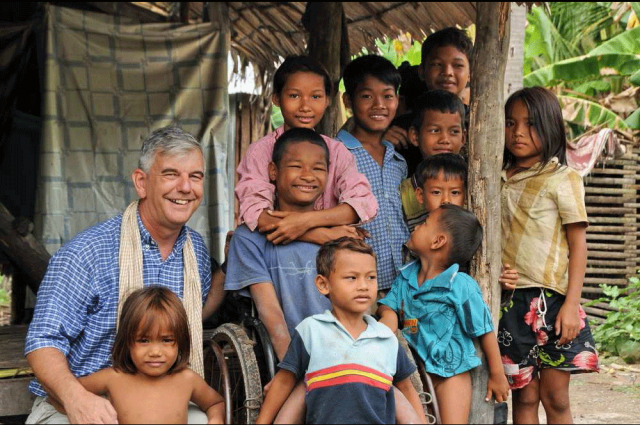
We had a great lunch there with all the team of “krom cho tau phum” and some friends that were visiting. The essential work that outreach develops is to listen, keep company, encourage and to establish relationships in terms of friendship and companionship. We try to answer the needs of people challenged by limitations, that we call disabilities, and poverty in a rural area.
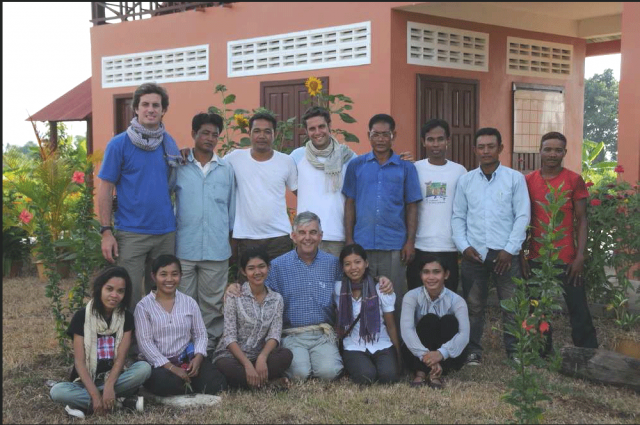
The friendship and company to Channy, Phirum and Chivoan approach us to the True Life. They are the face of God that touches us and teaches us to listen and see the dignity of every person. We believe that with our friendship, our listening, our companionship, our support and our love, their lives will also be touched by the tenderness of God. Their lives are changed for the better, making evident how important each of us is in the eyes of God.
Kike Figaredo sj
All Saints’ Day
November 2, 2009
Battambang

